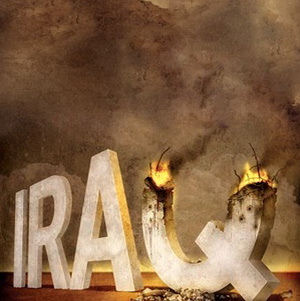A Representative Democracy for the Iraqis

Regardless of the dramatic developments in post-occupation Iraq –including the recent parliamentary election and its unanticipated result- it appears that some foreign countries and domestic political parties have not yet grasped the reality of politics in Iraq, or are at least trying to direct developments in a way that realizes their projected dreams.
In its long history, Iraq has been the battlefield in the fight for Shiite and Sunni political doctrines. This has been the factor determining the fate of domestic and regional conflicts involving the nation-state born of colonial powers’ pens. It was this same factor that prompted century-long wars between the Safavid Empire of Iran and its neighboring Ottoman Empire over the land known as Iraq. Although Shiites have always been the dominant religious population, Sunnis have for most of the time held political power in this country, to the great pleasure of both Arab and non-Arab Sunni states of the region.
The Shiites place in Iraq as second-degree citizens was never a true reflection of social realities, and as such, maintaining that status was always doomed to fail. The power equation had to change sooner or later, and Saddam Hussein’s overthrow provided this opportunity. A defiance of this reality by traditional political actors, either inside Iraq or in the region, has brought about consequences from which the Iraqi nation still suffers.
Nearly two months after the parliamentary election, it is not yet clear who will form a new Iraqi cabinet. The frequent visits of Iraqi politicians to other countries, especially to non-Arab and Arab Sunni states, presents a worrisome picture: that in an orchestrated move, some domestic political parties are cooperating with foreign actors to arrange the next cabinet such that it under-represents the balance of Shiites, who form sixty percent of the country’s population.
Even now, Shiites hold 172 seats of the total 325 in the parliament, which equals a 53 percent majority. If this fact is not translated into the cabinet, democracy as the first step, and stability as the second, will be undermined.
Calls for a national cabinet which are heard from many political parties today, will be achievable only if the realities of Iraqi politics today are heeded. This cabinet would be far removed from what some Sunni states of the region wish for—a Maliki-Allawi alliance which is joined by the Kurds—what would marginalize the ‘National Alliance” of Abdul-Aziz Hakim and Muqtada Sadr. The recent bombings in areas that are recognized as being traditionally in the National Alliance sphere of influence, gives meaning to this context.
Think tanks in some Arab and non-Arab states have together planned a dangerous game in Iraq. But the fruit of their plans, if they come to fruition, will be bitter: Iraq will turn into a terrorist haven once again and will move to the brink of disintegration. Shiites are the most influential factor in Iraq, and their political and social weight should never be overlooked. Acknowledging this reality is the basic factor to move Iraq towards democratic rule, political and social progress, and stability.
Iran, as a country that has a shared history and religion with Iraq, should also be aware that some of its nominal friends can undermine its position in Iraq, while nothing better serves Iran’s interest than a peaceful Iraq.

